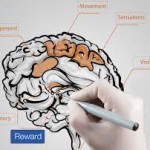The following is a guest post, composed by Julia Hammid. I’m grateful to Julia for her thoughtful and sensitive reflections…..
Judging by the volume and intensity of the discussion around Harm Reduction (HR), both here and in many other venues, it seems to be a flashpoint for identifying some of the core issues driving policy, research and personal opinion in regards to addiction (even as the term addiction is still being defined). In the spirit of promoting an illuminating and productive conversation around addiction, recovery and treatment, here are some of my thoughts on HR. Just for the record, I am in favor of HR as a concept, though I may not agree with every version of how it’s provided.
So, why the brouhaha around HR? Doesn’t it just describe a broad variety of strategies to counteract the damage of addiction, short of complete abstinence? The question is not so much whether HR should exist. It’s going to exist no matter what we say. The question is whether or not we like it and support it. For example, we dispute whether the powers that be should fund programs that provide clean syringes, safe spaces to use, and even the (uncontaminated) substances themselves. In my mind, HR includes a lot more. In fact, I would claim that most, if not all, recovery includes some form of HR, even if complete abstinence is the goal.
 While addiction includes a vast array of substances and behaviors, abstinence can only be applied to selected substances, mostly illegal ones. How are we to define abstinence from addictions that are not measurable with a blood test? And even where abstinence is the only goal, where HR is most controversial, those who are abstinent from the identified substance often end up substituting or relying on (dare I say becoming addicted to?) other substances or behaviors, which fly under the radar. For instance, there’s a joke around AA about being addicted to the donuts and coffee that are ubiquitous at meetings.
While addiction includes a vast array of substances and behaviors, abstinence can only be applied to selected substances, mostly illegal ones. How are we to define abstinence from addictions that are not measurable with a blood test? And even where abstinence is the only goal, where HR is most controversial, those who are abstinent from the identified substance often end up substituting or relying on (dare I say becoming addicted to?) other substances or behaviors, which fly under the radar. For instance, there’s a joke around AA about being addicted to the donuts and coffee that are ubiquitous at meetings.
I am not saying that addiction cannot be overcome or that one thing is always replaced by another or that any of the above is bad. I am just saying that I think, with few exceptions, recovery is always a continuum and always includes some form of HR, in the fullest sense of that term. More often than not, there is a period of shifting of  dependence from the target bad thing to other less harmful (or simply legal and more easily obtained) things. Even seemingly positive things can be pursued with some of the same desperation that the original addiction carried, including socially approved addictions such as, coffee, sugar, TV, running, the internet, or even “dependence” on therapeutic treatment, religion, etc. I know some people who are so immersed in their 12-step community that their whole lives revolve around meetings, the literature and the people they know in that community. I’m not saying that’s a bad thing. I’m just saying that it should be recognized as a form of HR.
dependence from the target bad thing to other less harmful (or simply legal and more easily obtained) things. Even seemingly positive things can be pursued with some of the same desperation that the original addiction carried, including socially approved addictions such as, coffee, sugar, TV, running, the internet, or even “dependence” on therapeutic treatment, religion, etc. I know some people who are so immersed in their 12-step community that their whole lives revolve around meetings, the literature and the people they know in that community. I’m not saying that’s a bad thing. I’m just saying that it should be recognized as a form of HR.
To some, HR connotes state-supported addiction. But that is nothing like the actual goals of HR proponents. The controversy is kept alive by discrepancies such as these. In contrast, I think the word “abstinence” carries its own social and psychological baggage and may misrepresent what the opponents of HR are arguing for. Abstinence is not a term I personally find appealing. For me it connotes ascetic monks trying to rise above earthly existence by denying themselves much of what makes life worth living. Abstinence puts the focus on what one is not doing, rather than looking forward to what is truly worthwhile. In some ways, full blown addicts are abstinent from life, foregoing all its richness in pursuit of their addiction. Most agree that abstinence from a particular drug or behavior is far more precious.
A story was shared in response to a post on this blog, about a relative being instructed to just apply a cool cloth to the addict’s forehead and in a few weeks they would “be good as new.” As any recovering addict will tell you, it  takes a lot more! And much of what it does take I would classify as HR. Even if you quit the identified addiction, there are still a mountain of other issues that need to be addressed, such as recovery from the trauma that may have been driving the addiction, employment, reputation, how to create/repair a life, a family, a community. From the addict’s point of view, support for those tasks is as essential as stopping using. And much of that work can begin while engaging in “official” HR services.
takes a lot more! And much of what it does take I would classify as HR. Even if you quit the identified addiction, there are still a mountain of other issues that need to be addressed, such as recovery from the trauma that may have been driving the addiction, employment, reputation, how to create/repair a life, a family, a community. From the addict’s point of view, support for those tasks is as essential as stopping using. And much of that work can begin while engaging in “official” HR services.
Society sees addiction as a drain on its resources (unproductive individuals sucking up services) and a source of harm to others (crime, disease, embarrassment, etc.). So, from society’s perspective, fully abstaining from the addiction removes all the above negative consequences. But from the perspective of addicts (and those who are able to step into their shoes, whether family or treatment providers) it’s not at all that simple.
Abstinence and recovery are not one and the same. As opposed to simply stopping using the target substance, “complete” recovery is as varied as are humans. Life is, by its very nature, imperfect, and applying definitions of things such as addiction, abstinence, sobriety, and recovery to real people will always be approximate.
The core arguments I’m hearing are about who pays for what services and strategies, what the authorities endorse, and what is socially and ethically acceptable. We can, and should, argue about specific programs, policies and laws, but trying to agree on one “correct” way to recover from addiction ignores the valiant struggles and triumphs of so many who have recovered, one way or the other. I was bulimic for over 15 years (many years ago), which was as intractable, self-abusive and life threatening as addiction to any drug. And I am quite certain it would have killed me had I continued. As with other less clear-cut addictions, recovery for me is a continuum, one which involved plenty of what I would certainly call Harm Reduction.
Julia Hammid
PS. I (Marc) highly recommend this Time article by Maia Szalavitz. It is just excellent, and it provides some very dependable statistics that argue for the value of various Harm Reduction programs and policies.

Leave a Reply